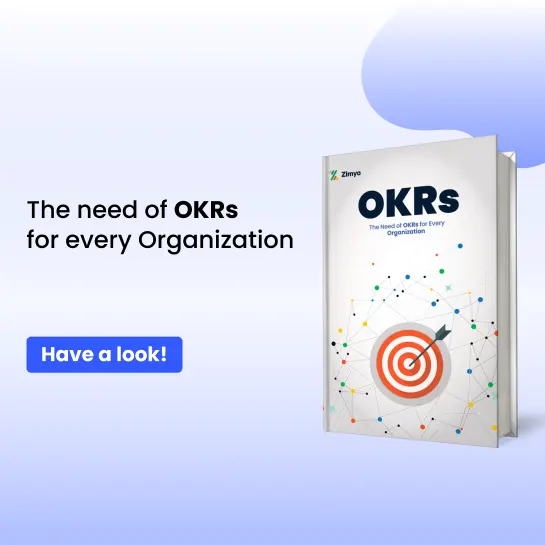Every day we spend quite half of our waking hours at our jobs. Since most of our time is devoted to our work, how we are treated at our workplace has a direct impact on our personal lives.
When remote employees feel connected to their teams and involved in projects, they will be among your most productive—and happiest—employees. But if they begin feeling isolated or neglected, that may change quickly. But your employees couldn’t possibly be feeling like that… do they?
A recent poll by Buffer found that almost one-fifth of all remote employees feel lonely from time to time and though which will not look like plenty, if 20% of all of your remote employees are feeling this way, your company as a whole may suffer especially since many businesses are learning the way to work from home on the fly during the pandemic.
Feeling isolated at work can negatively impact employee morale, productivity, and employee engagement. It can ultimately cause employees to look for brand new jobs.
Tackling workplace isolation goes way beyond just encouraging good relationships. It involves being skilled in proper remote team management and planning successful employee engagement strategies. To eliminate workplace isolation at your company, you must understand what it is, the way to spot it, and then work to help your team overcome it.
What Is Workplace Isolation?
It refers to employees feeling secluded and separated from either their colleagues, their managers, or the complete organization as a whole. Someone who feels isolated at work might feel that they don’t belong where they work or they will even feel that they’re unfit for his or her job.

According to research by Gallup, remote workers can feel lonely and isolated – but it isn’t typical and it’s preventable. In fact, a recent study by Buffer conducted on 1,900 remote workers around the world found that 90% shall work remotely for the rest of their lives and 94% recommend off-site careers. And when asked to name the largest struggle with working remotely, just 21% named “loneliness.”
Regardless of the case, lack of employee engagement during the pandemic often leads to workplace isolation which is extremely detrimental to both the staff and also the organization that they work.
What Causes Workplace Isolation?
There are several reasons which can make your employees feel isolated. It can be due to their colleagues or due to their workplace policies. It’s important to know that workplace isolation can still occur whether or not you think that that you give your employees the best. It can occur despite a high salary, numerous benefits, and even frequent appreciation.
It is more about the culture of your workplace- how your employees interact with one another and the way equitable your policies are. in a nutshell, here are some common reasons for workplace isolation:
- Lack of effective communication
- Compartmentalization within the workforce
- Harassment, racism, and workplace bullying
- Lack of diversity
- Unfair treatment of employees
- Lack of remote employee motivation
- Toxic workplace culture
Why Does Isolation at Work Matter?
Although isolation may appear to be a personal or trivial issue, to several people it is a serious issue they face.
Research undertaken in 2015 shows that loneliness is worse for your brain and your body, over time than alcohol and smoking. It affects not just how you’re feeling, but how you perform.
It often ends up in an emotional withdrawal from the organization. Such people tend to be less committed, creative, collaborative, and attentive, and both the standard and quantity of their work can deteriorate. it has also been identified as an element that leads to workplace burnout.
Key Signs That Your Remote Employees Feel Isolated
These are the successful employee engagement strategies you need to work on to know if your employees are feeling isolated at work:
-
Misses Deadlines or Is Sloppy
This is probably the most obvious sign of workplace isolation. If a usually dependable team member starts delivering sloppy work or begins missing deadlines, investigate immediately. Then sit down with the employee to develop a solution.
-
Stops Offering Input
If a remote worker suddenly stops offering suggestions or participating in goal setting, they could be feeling disconnected from the team. As a manager, work on remote employee motivation – talk to your team in a friendly way and see where the issues lie?
-
Calls in Sick or Changes Their Schedule
If a team member shifts their work hours to times outside of their established schedule, works when nobody else is available, or takes numerous sick days without explanation, it could be due to feelings of isolation.
-
Doesn’t Interact with Colleagues
If you’ve given your remote worker the right online tools to foster that teamwork, but they suddenly stop communicating or working with their colleagues, something is probably going amiss. If the matter isn’t technical, it’s going to be a result of feeling disconnected from the team.
-
Skips Meetings
If your remote worker starts skipping meetings, it might be because of a technical problem that’s relatively easy to resolve. But it also might be an indication of growing isolation.
How to Beat Isolation Fatigue In Remote Employees?
Workplace isolation is also extremely detrimental but it’s not something that can’t be resolved. If you’re thinking that your one among your employees or plenty of them are littered with isolation here are some ways to tackle it:
-
Encourage Good Relationships
You can’t force people to become friends but you can assist them in making friendly bonds, by planning events that involve team-building, organizing fun work from home activities, and focusing on employee engagement during the pandemic.

Be aware, however, that these activities may only get you to this point. After all, someone can have many connections on LinkedIn but still feel alone. Rather than just focusing on the number of connections, encourage your people to prioritize making quality connections. this may make sure that the relationships that they are forming form are more fulfilling and valuable.
-
Remember the Little Things
The smallest gestures can make a whole lot of difference. Small things like making someone a coffee, or simply greeting with a humble “hello” in the morning will show them that you simply care and that they matter. Random acts of kindness like these will likely have a positive effect on the rest of your team, too.

If you are a manager, do not forget to prioritize your one-on-ones. This can act as a secure space for your officemates to share their feelings and opinions with you.
-
Take an Interest in People’s Lives
Remember, work is not the only thing in people’s lives. Your employees are likely to have families, hobbies, and friends outside of your workplace too. Take an interest in the aspects apart from work and try to understand them as individuals, with unique personalities and experiences, and listen to what they say.

It will likely make people feel safer and satisfied, which might give them the boldness to open up about their vulnerabilities. This may help to remind folks that they are not alone, and can encourage them to create positive and meaningful connections with others around them.
-
Allow Social Breaks
Encourage remote employees to take advantage of the flexible work to build a healthy bond with their respective team members. It provides a rejuvenating getaway that may result in better performance upon returning to company tasks.

If physical get-togethers aren’t possible, try work from home activities like video lunches or brainstorming sessions, pairing workers up for projects, or maybe online games. Make it a standard practice to assign a “buddy” to new remote team members, so that they have someone within the company to turn to besides management.
-
Celebrate Successes
Coming together as a bunch to share during a collective success can help a team bond. that features public recognition of a team member who goes the extra mile or scored a win for the organization.

Encouraging employees to cheer one another on can melt the ice and help communication flow beyond that celebration. The celebration itself can help isolated members feel like a part of the team.
-
Give Your Employees A Voice
Effective Workplace Communication
Any problem that your employees face cannot be resolved if you don’t comprehend it in the first place. Feeling cornered and isolated are some things that the majority of employees won’t share unless they feel comfortable doing so. Your employees must be given a voice to share their concerns. When employees are empowered and given a voice, they will share problems with no hesitation.
-
Focus on Collaboration

One of the most amazing benefits of collaboration is that promotes healthy relationships between the staff. Frequent collaboration allows employees to mingle and understand one another better. Invest in good virtual team building software to improve their level of communication and make them comfortable with one another.
-
Go for Diversity
In today’s world, it’s extremely important to own a varied workforce. Most employees who feel lonely or isolated are those who are within the minority. for instance, in a workplace where there’s male dominance and really few women are working, it’s natural for those women to feel isolated.

Similarly, people with a special ethnicity as their colleagues tend to be more separated and cornered. once you hire people of various gender, race, and class you’ve got a team of employees who respect one another no matter their background.
Workplace isolation is something that’s usually not given much attention to by employers. Unfortunately, it’s a quite persistent problem with very grave consequences. However, on a positive note, it’s a problem that may be resolved with effective strategies. Taking steps to deal with it can boost morale, which might make your business more productive and successful.
To learn more about how to keep your employees from feeling isolated at work
Read more: How To Create a Sense of Belonging in the Workplace | Zimyo
Also Read: How Employers can Survive Through The Recent Coronavirus Pandemic?







